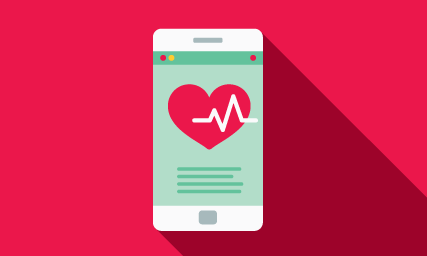Your body’s organ systems don’t function in silos, and Dr. Anand Prasad doesn’t think your healthcare should, either.
Imagine you are looking inside the human body. It’s easy to identify the big, separate organs: there’s the heart, up in the chest, pumping away at its job of distributing blood throughout the system; look a little lower down toward the back and you’ll find the kidneys, the bean-shaped objects busily filtering the blood as it moves. One moves it, one cleans it.
They need each other. It’s a relationship. And it’s complicated.
“Kidney disease itself is a risk factor for heart disease, and vice versa,” said Dr. Prasad, director of University Hospital’s cardiac catheterization lab and an associate professor of medicine at UT Health San Antonio.
The heart/vascular and kidney systems rely closely on one another, so when one system develops problems, so do the others.
“The glue between those two in many cases is diabetes,” Dr. Prasad said – and South Texas has high rates of diabetes.
The diabetes connection
Patients with worsening kidney function may end up on dialysis, he said, and have worsening peripheral arterial function as a result. Increasing calcium deposits in the arteries mean more heart attacks and heart failure. But a heart patient with diabetes-related issues can come in for a cardiovascular procedure, such as a stent, and end up with acute kidney injury from too much contrast dye, or develop problems related to low blood pressure and other health issues.
That’s why it’s so important for cardiologists to ask questions going into treatment about baseline renal function, he said. But the responsibility goes in more than one direction.
“What each of us does affects the other organ systems,” he said.
To help make those connections, Dr. Prasad has teamed with Dr. Shweta Bansal, a nephrologist and associate professor of medicine at UT Health San Antonio, to create the conference Cardio Renal Connections.
A team approach
And it takes more than medical subspecialists. Cardiologists, nephrologists, nurses, primary care physicians, dietitians – all play important roles in patient care and all need to communicate to give the best care.
Nursing staff are critical to a procedure’s success, Dr. Prasad said, so they also are involved in planning and presenting at Cardio Renal Connections, which will next be held in April 2020.
It won’t make a big difference in the overall health of the population if the communication only happens once the patients become very sick, he said. It’s important to reach primary care physicians, who are the gatekeepers in healthcare, because they’re the ones who are screening for diabetes and who are getting regular updates on a patient’s blood pressure.
And the MVP on this team is the patient with diabetes.
“It truly does affect every organ of their bodies,” he said.
Learn more about diabetes research and treatment options at the Texas Diabetes Institute.
You can get your heart health questions answered during our Heart Health Phone Bank on KSAT Feb. 25 – be sure to watch live interviews, get the call-in number where experts can help with your questions, and catch the Facebook Live, all happening between noon and 7 p.m.

Heart disease is the leading cause of death for both men and women.
Our free online risk assessment only takes a few minutes. It will help you better understand your risk of developing heart disease and how you may be able to lower it.



